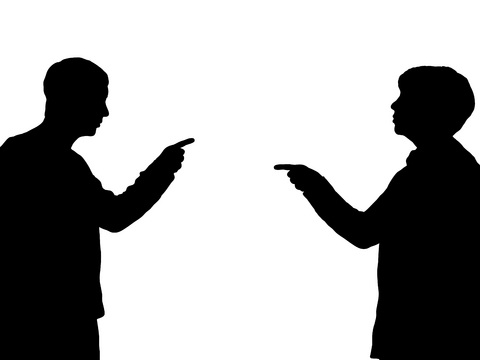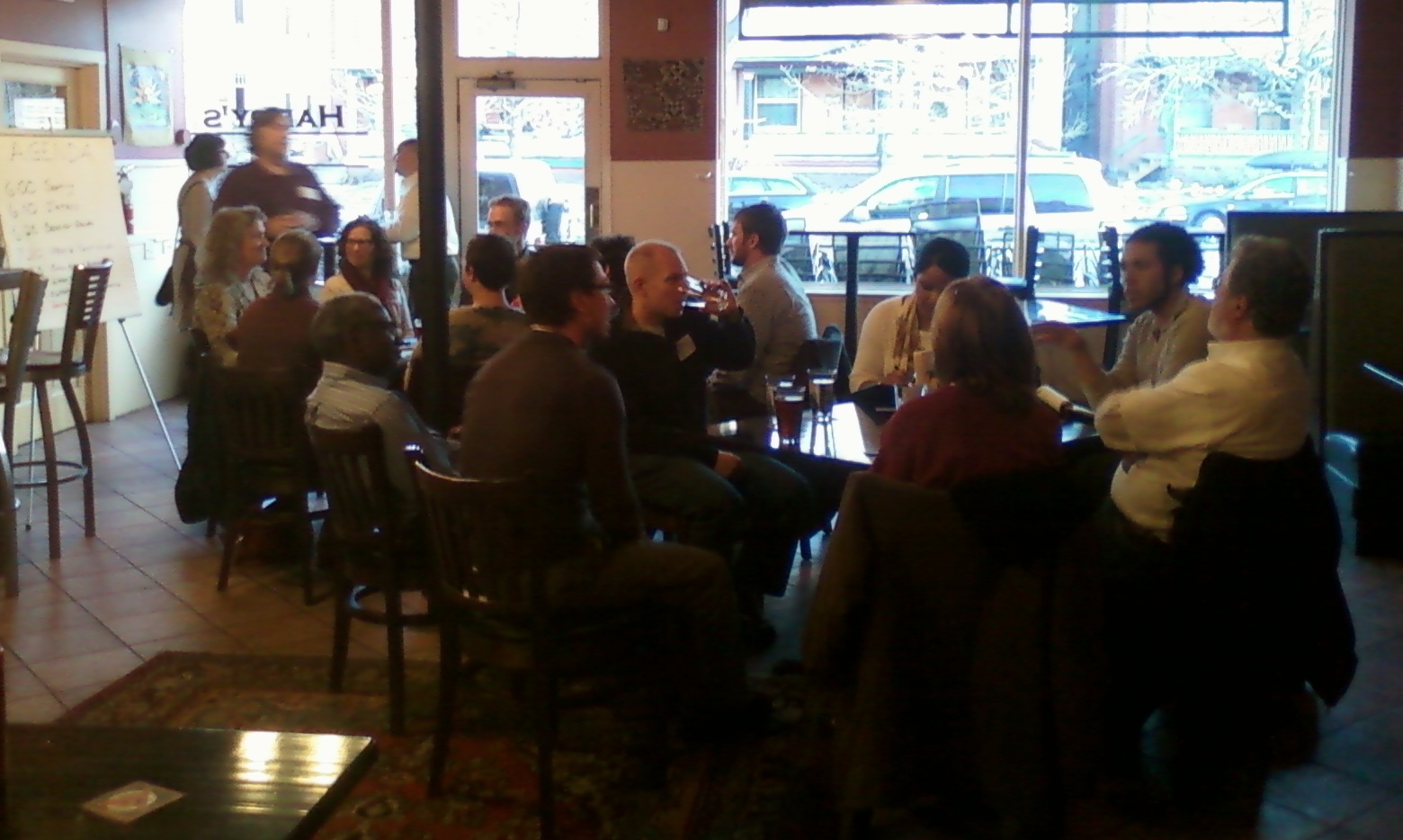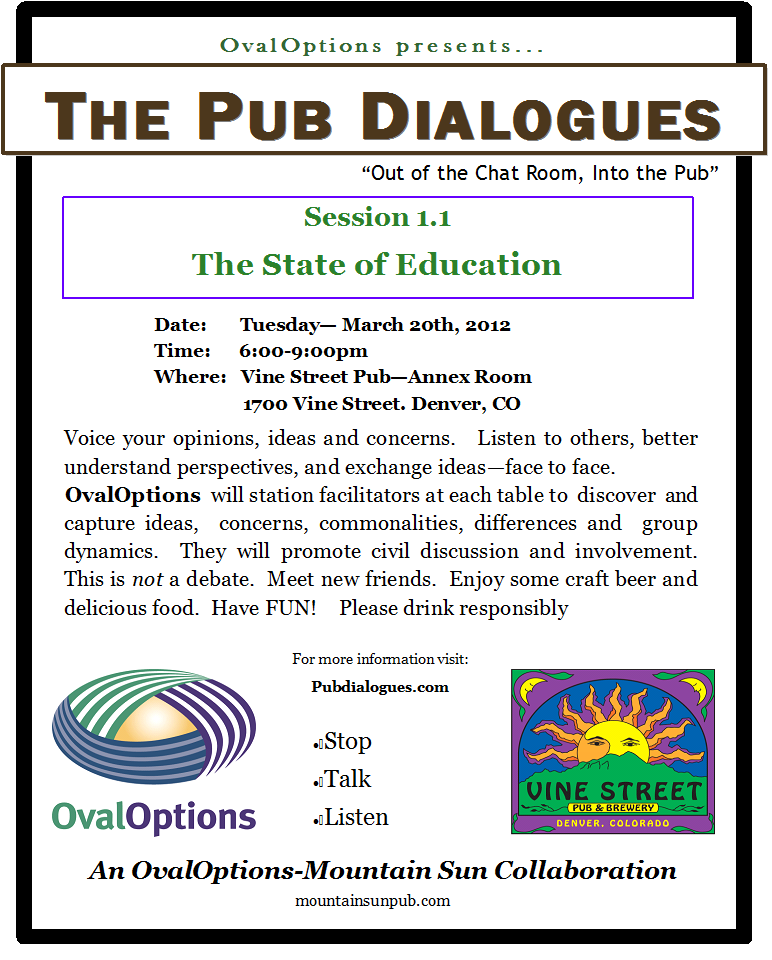What is dialogue, really?
Dialogue can be a tangled mess
Two recent Twitter threads can hopefully serve as catalysts to much needed problem solving in the craft beer community (and perhaps American society). BeerKulture and TheThirstyWench published articles and shared them on Twitter. Recapping them here will not do them justice. (Very) basically, the latter took on misogyny and the former racism. Some interesting twittering followed. There were several calls for conversations to take place to address and fix the these social abominations.
On the surface, it is great to know that people are pushing for dialogue. My worry, though, is that "dialogue" is not fully appreciated for what it is, what it does, and what it takes. There is no magic wand to make things "right" or get rid of the nastiness. Just talking in a group won't do; if not done properly, then things can get worse. Still, success isn't impossible. We can tackle difficult subjects and inspire, if not bring about, positive change through talking and listening*. It takes hard, dedicated work that will provoke intense reactions. What the craft beer community seems to want is Dialogue (with a capital "D").
"Dialogue" has been conflated with restorative justice methods, debate, discussion, conversation, and other practices. If it's anybody's fault, we are to blame; the conflict management community for not speaking up. This is the main reason for this article.
So, what is Dialogue? As a conflict management specialist, there are varying models. My former workplace, @Meta-Culture, utilizes one model for interfaith Dialogue. We engage other models depending on the situation. The @PubDialogues uses a "pop-up", world cafe model. But they all share core principles, and start out as tangled messes, like some of the utility poles I saw in India (actually, the one above is in Kathmandu).
Dialogue is different than debate (where arguments are presented and a “winner” is chosen). It is not advocacy or a platform. It does not lead participants to a presumed solution. Grandstanding is not tolerated. People don't talk over others. The goal of Dialogue is to solve a problem, not force arguments. It is a facilitated group effort to overcome challenges at their core. Why facilitated? Without an experienced facilitator, well-intentioned conversations can turn into rallies, partiality, bullying and unchecked aggression. Topics of conversation would tend to be myopic or unfocused, cluttered or quiet. A facilitator tracks ideas, allows everyone a voice, utilizes conflict management techniques, provides clarity and keeps things civil.
Dialogue requires more than discussing something, talking over an issue or airing grievances. In order to effectively engage in problem-solving, some things need to happen:
Understand the problem (REALLY understand it)
Make sure the problem is not a symptom of other problems
Understand those other problems
Identify those affected
Communicate ideas for solutions
This isn't all, but sustained Dialogue is the best way to get started.
The craft beer community may just be the most suitable community for Dialogue efforts on social issues. It is collaborative, social, passionate, and connected. So, is the craft beer community ready for dialogue? Because things can get dicey right out of the gate and steam can be lost quickly. Those Twitter threads, when looked at through a conflict management perspective, reinforce this question.
Dialogue is challenging, difficult, frustrating, straining, rewarding and most likely not what is expected. Each participant may feel like walking out at some point. The phrase, "I just don't understand why we're talking about this thing" will be uttered. So will, "that's a stupid question" and "no, no...you're so wrong". Dialogue is not straight forward. It takes time, patience, energy and sacrifice.
The core of Dialogue is inquiry. Questions. Lots of them. And lots of different types of, and motives for, questions. Some seek information while others are designed to challenge current thinking. Some may seem easy, silly, defensive, dumb, aggressive, offensive or redundant. Every question asked in a dialogue is important and should not be dismissed. This can challenge listening*.
I could preface a Dialogue by saying, “now, try not to be offended” or “don’t take this the wrong way”. Well, to me, these suppress valuable information. Plus, I can’t tell you how to feel, or judge your feelings. Expect to be offended; just say so and we can address it. There will be a lot of "why" questions; the simplest, most annoying question ever—and most useful.
So, with this in mind, let’s look at an example of the types of questions that may be asked in a Dialogue for the craft beer community. Here’s a “simple” one.
What is racism?
I’m guessing your first thought is to define it. That’s fine.
1: a belief that race is the primary determinant of human traits and capacities and that racial differences produce an inherent superiority of a particular race
2 a: a doctrine or political program based on the assumption of racism and designed to execute its principles
b: a political or social system founded on racism
3: racial prejudice or discrimination
Well, the definition is just one part. It doesn’t explain a whole lot. What else is racism? Rodney King being beaten by cops? Yes, that’s an example. What else IS racism? Let’s look at it from other angles:
Could it be a response to something? What?
What about a symptom? Of what?
What does it require?
Is it taught, otherwise learned or biological?
Where does it exist? Not exist?
When, how did it start?
What purpose does it serve?
How do some people think of it as good? Why?
Is it an action, notion, idea, or something else?
That's just the tip of the iceberg. Responses to these questions will likely give rise to other questions. And the Dialogue can go like this for quite a while. Some take months or years. So, craft beer community, that's a basic introduction to Dialogue. If this is what you want, fan-frickin-tastic! We're ready to help.
*Listening is more than just hearing the words of someone else. It requires an understanding of what someone is saying, why they are saying it, how they feel about it and the point they are trying to make. It also involves clarifying what you hear and interpret. It's a difficult skill to master, which is why having facilitators helps in a group setting.




